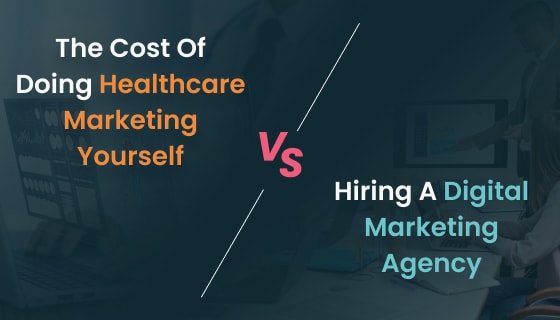Introduction
Integrating artificial intelligence (AI) in healthcare SEO rapidly transforms how medical information reaches and engages audiences. ChatGPT and Bard, two advanced AI technologies, are at the forefront of this revolution, offering innovative solutions for optimizing digital content.
Their impact on healthcare SEO extends from enhancing keyword strategies to creating personalized user experiences. As healthcare providers and marketers adapt to these changes, understanding the potential of ChatGPT and Bard becomes essential for staying competitive in the evolving digital landscape.
Understanding ChatGPT And Bard: The Basics
ChatGPT and Bard, AI-driven platforms, are redefining the standards of healthcare SEO. ChatGPT, known for its sophisticated natural language processing, excels in generating coherent and contextually relevant content.
Bard, on the other hand, specializes in real-time data analysis and insights, making it a valuable tool for dynamic SEO strategies. Both technologies harness the power of AI to analyze and predict user behaviors, paving the way for more effective and targeted healthcare SEO approaches.
The Impact Of AI On Healthcare SEO Strategies
Integrating AI technologies like ChatGPT and Bard is revolutionizing healthcare SEO strategies. These tools enable the creation of content that resonates deeply with target audiences, improving search engine rankings and user engagement.
AI’s predictive analytics helps identify emerging trends and patient needs, allowing healthcare providers to tailor their content more effectively. The result is a more efficient, data-driven approach to SEO that enhances online visibility and patient outreach.
Key Features Of ChatGPT And Bard In SEO
In the dynamic landscape of healthcare SEO, the integration of ChatGPT and Bard introduces transformative features that redefine content optimization strategies. ChatGPT, with its advanced natural language processing, emerges as a powerhouse for creating compelling and contextually relevant content.
Its ability to understand and generate human-like text elevates user experience, thereby enhancing search engine rankings. On the other hand, Bard’s real-time data analysis feature provides a crucial edge, allowing healthcare providers to interpret user data and market trends swiftly.
This capability empowers informed decision-making, enabling dynamic adjustments in SEO strategies. ChatGPT and Bard form a symbiotic relationship, combining advanced content creation with real-time insights for a comprehensive and effective approach to healthcare SEO.
Advanced Natural Language Processing
ChatGPT’s advanced natural language processing capabilities make it an invaluable asset in healthcare SEO. Its ability to understand and generate human-like text allows for creating highly engaging and relevant content, enhancing the user experience and search engine rankings.
Real-Time Data Analysis
Bard’s real-time data analysis feature offers a significant advantage in healthcare SEO. It enables the quick interpretation of user data and market trends, allowing healthcare providers to make informed decisions about their SEO strategies.
Personalized Content Creation
One of the key benefits of incorporating ChatGPT and Bard in SEO is the ability to create personalized content. These AI technologies analyze user behaviors and preferences, allowing healthcare providers to tailor content that resonates deeply with their target audiences. .
This personalized approach not only enhances user engagement but also contributes to improved search engine rankings, establishing a more meaningful online presence.
Benefits Of Integrating ChatGPT And Bard In Healthcare Marketing
Integrating ChatGPT and Bard into healthcare marketing strategies yields multifaceted benefits, revolutionizing how medical information connects with audiences. Leveraging ChatGPT’s advanced natural language processing, healthcare providers can offer a more personalized and engaging user experience.
This, in turn, contributes to increased user retention and improved search engine rankings. Additionally, the predictive analytics capabilities of ChatGPT and Bard prove invaluable in identifying emerging trends and patient needs.
This insight enables healthcare marketers to refine their keyword strategies, ensuring content remains relevant and resonant. Integrating these AI technologies not only enhances user interaction but also streamlines content creation, ultimately maximizing the impact of healthcare SEO efforts.
Enhanced User Experience
Through advanced natural language processing, ChatGPT contributes to a more immersive and user-friendly experience, ensuring that medical information is presented in a way that is easily understood and appreciated by diverse audiences.
Improved Keyword Optimization
ChatGPT and Bard’s predictive analytics capabilities revolutionize keyword optimization by identifying emerging trends and patient needs. This insight allows healthcare marketers to refine their keyword strategies, ensuring their content remains relevant and competitive in the ever-evolving digital landscape.
Efficient Content Strategy
The combination of ChatGPT’s content generation and Bard’s real-time data analysis streamlines content strategy in healthcare marketing. This efficiency not only saves time but also ensures that the content remains aligned with current trends and user expectations, maximizing the impact of healthcare SEO efforts.
Overcoming Challenges In AI Implementation
While the integration of ChatGPT and Bard holds immense potential for revolutionizing healthcare SEO, it is not without its challenges. One key hurdle is ensuring seamless collaboration between these AI technologies and existing digital infrastructures. Healthcare providers and marketers must navigate issues related to data security, privacy concerns, and the ethical use of AI-generated content.

Additionally, training teams to effectively leverage the capabilities of ChatGPT and Bard is crucial for maximizing their impact on SEO strategies. Overcoming these challenges requires a comprehensive approach that addresses technical, ethical, and operational aspects, ensuring a smooth and ethical transition to an AI-driven healthcare SEO landscape.
Future Of AI In Healthcare SEO: Predictions And Trends
The future of healthcare SEO is intricately tied to the continued evolution of AI technologies like ChatGPT and Bard. Predictions indicate a shift towards even more personalized and contextually relevant content, driven by advanced natural language processing and real-time data analysis.
The integration of AI is likely to lead to a more profound understanding of user intent and behavior, allowing healthcare providers to anticipate and meet patient needs more effectively.

As AI continues to advance, the landscape of healthcare SEO will witness dynamic trends, shaping the way medical information is accessed, consumed, and ranked in search engines.
Preparing Your Healthcare SEO For AI Integration
To prepare for integrating ChatGPT and Bard into healthcare SEO, organizations must focus on upskilling their teams and fostering a culture of adaptability. This involves providing training on AI technologies, data interpretation, and content optimization strategies.
Developing a robust framework for data security and compliance is equally vital. Healthcare SEO professionals should embrace the collaborative potential of AI and human expertise, fostering synergy to deliver content that aligns with evolving search engine algorithms and user expectations.
Conclusion
The integration of ChatGPT and Bard marks a transformative phase for healthcare SEO. The convergence of advanced natural language processing and real-time data analysis propels the industry towards a more sophisticated, user-centric approach.
Overcoming implementation challenges, staying ahead of AI-driven trends, and preparing teams for integration are imperative for healthcare providers and marketers.
As AI becomes an integral part of healthcare SEO, the ability to harness its power will define the success of digital content strategies, ultimately enhancing online visibility and patient engagement.












